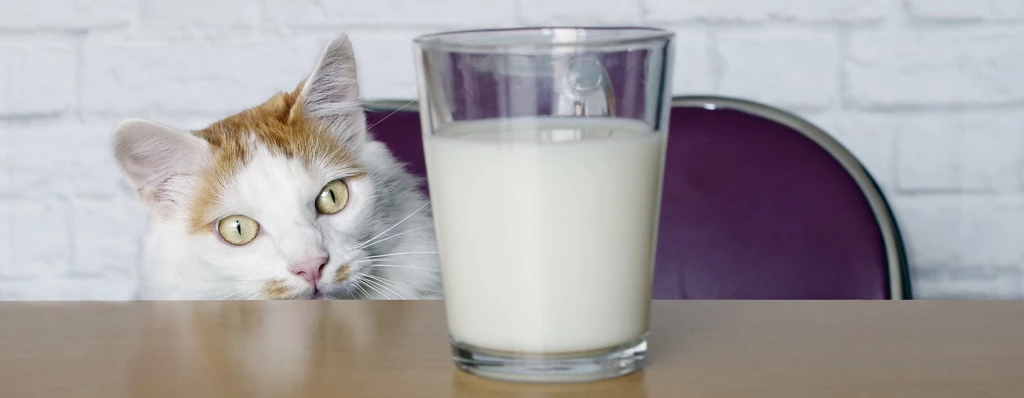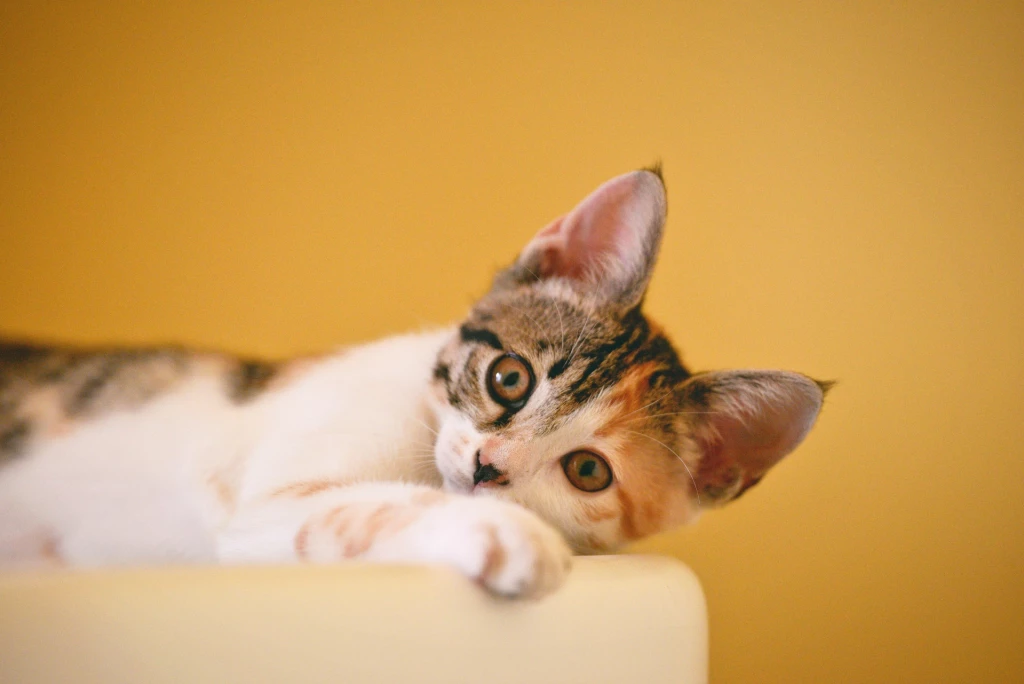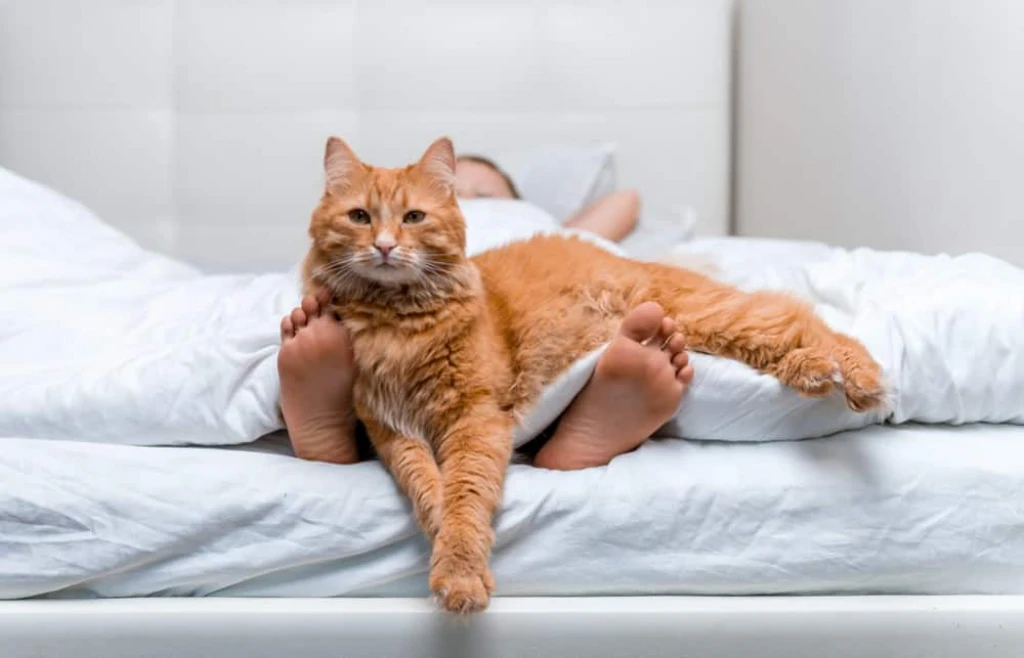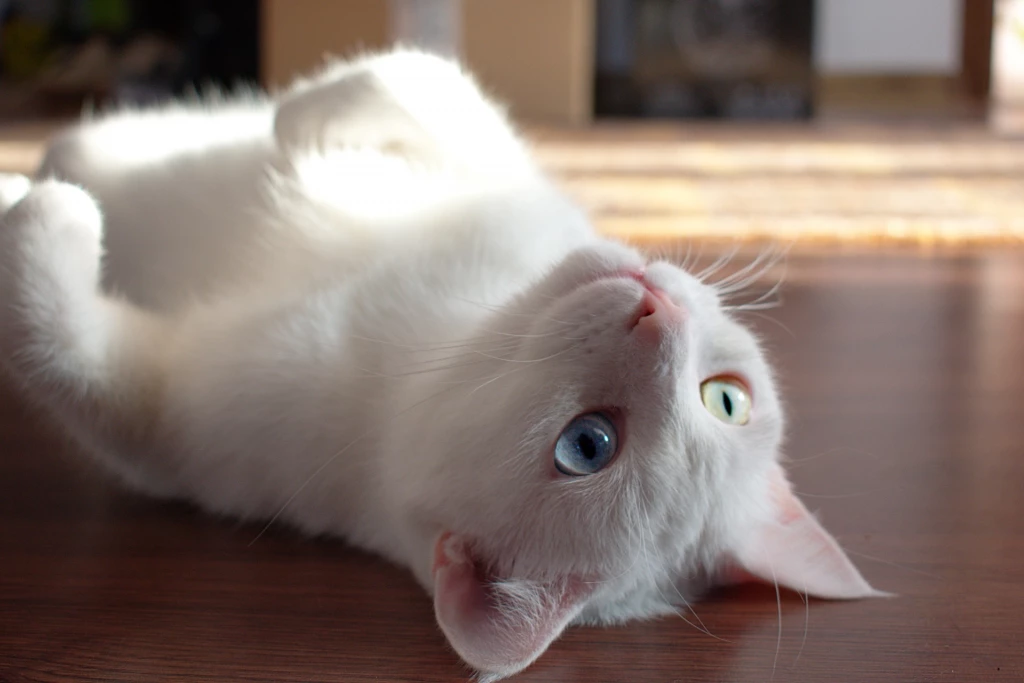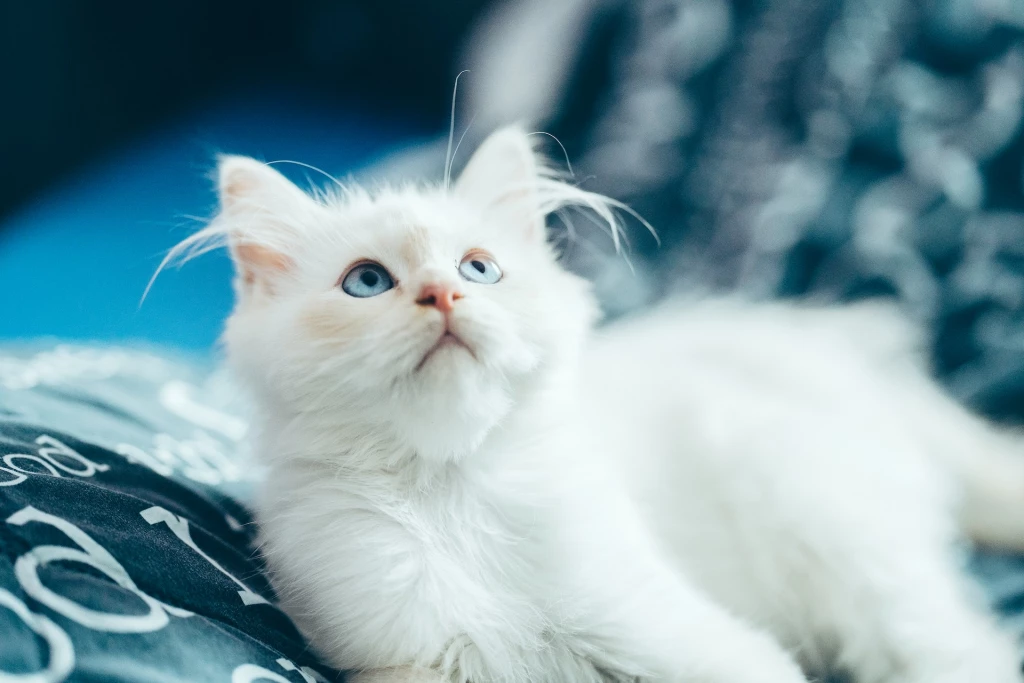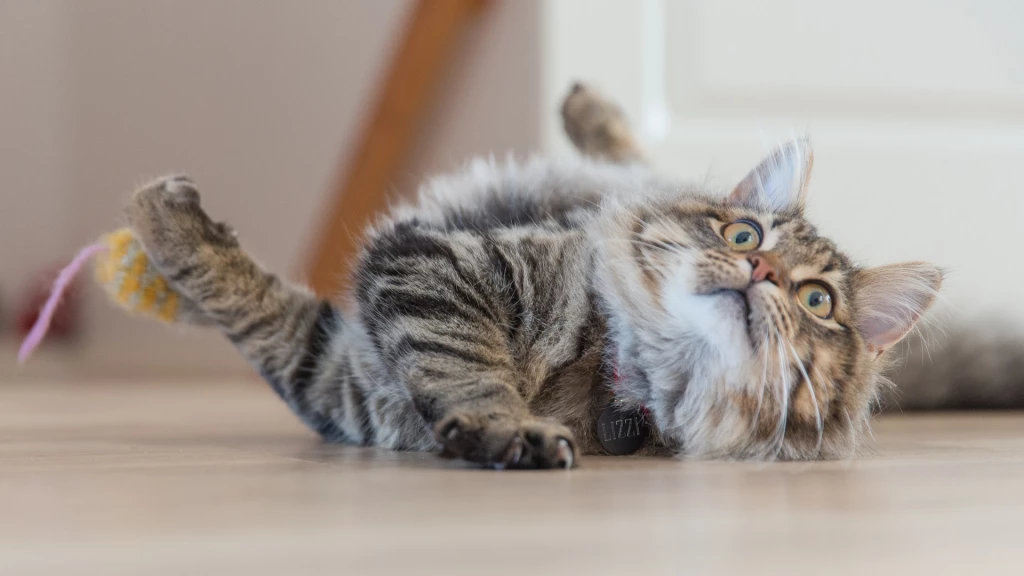If you have ever owned a cat, you probably know how much they love milk. Whether it is from a bowl, a carton, or even a faucet, cats seem to have an irresistible attraction to this creamy liquid.
But why do cats like milk so much? And is it good for them? In this blog post, we will explore the reasons behind this feline fascination, the benefits and drawbacks of giving cats milk, and some alternatives and tips to keep your cat happy and healthy.
The Mystery of Cats and Milk: Why Do They Love It So Much?
Cats are curious and adventurous creatures, but they also have some preferences and habits that are hard to explain. One of these is their love for milk. You may have noticed how your cat comes running when you open the fridge or pour yourself a glass of milk. You may have also seen how your cat tries to lick the milk from your cereal bowl or coffee cup. But why do cats like milk so much?
There are several factors that make milk appealing to cats, such as:
- Its taste: Milk has a rich and creamy flavor that cats enjoy. Milk also contains proteins and fats that cats crave, as they are carnivores and need a high-protein and high-fat diet. Milk also has a pleasant smell that cats can detect with their sensitive noses.
- Its association with comfort and motherhood: Cats have a long memory and they remember their time as kittens, when they drank their mother's milk and felt safe and loved. Milk can bring back those feelings of comfort and security for cats, especially if they are stressed or anxious. Milk can also trigger the kneading behavior in cats, which is a sign of contentment and relaxation.
- Its novelty and challenge: Cats are not natural drinkers and they do not need a lot of water to survive. They get most of their hydration from their food, especially if they eat wet food or raw meat. However, cats are also curious and playful, and they may find water boring or uninteresting. Milk, on the other hand, is a different and exciting liquid that cats may want to explore and experiment with. Milk can also pose a challenge for cats, as they have to lap it up with their tongues or use their paws to scoop it up.
What Are the Benefits of Giving Cats Milk?
Milk is not an essential part of a cat's diet, but it can provide some benefits for cats, such as:
- Hydration: Milk can help cats stay hydrated, especially if they do not drink enough water or live in a hot or dry environment. Hydration is important for cats' health, as it helps them regulate their body temperature, flush out toxins, and prevent urinary tract infections.
- Nutrition: Milk can provide some nutrients for cats, such as calcium, phosphorus, vitamin A, vitamin D, and vitamin B12. These nutrients can support cats' bone health, vision, immune system, and nervous system. However, milk should not be a substitute for a balanced and complete cat food, as it does not contain all the essential amino acids that cats need.
- Appetite stimulation: Milk can stimulate cats' appetite, especially if they are sick, elderly, or have a poor appetite due to stress or other reasons. Milk can entice cats to eat more by adding flavor and moisture to their food. However, milk should not be used to mask the symptoms of an underlying health problem or replace veterinary care.
What Are the Drawbacks of Giving Cats Milk?
Milk is not without its risks for cats, and it can cause some problems for them, such as:
- Lactose intolerance: Most adult cats are lactose intolerant, which means they cannot digest the sugar (lactose) in milk properly. This is because they lose the enzyme (lactase) that breaks down lactose after they are weaned from their mother's milk. When lactose intolerant cats drink milk, they may experience digestive issues, such as diarrhea, vomiting, gas, bloating, and abdominal pain. These symptoms can be mild or severe depending on the amount of milk consumed and the individual cat's sensitivity.
- Weight gain: Milk is high in calories and fat, which can contribute to weight gain in cats if given too often or in large amounts. Obesity is a serious health problem for cats that can lead to diabetes, arthritis, heart disease, and other complications. Therefore, it is important to monitor your cat's weight and calorie intake and limit the amount of milk you give them.
- Allergy: Some cats may be allergic to milk or dairy products, which means they have an abnormal immune response to the proteins (casein or whey) in milk. When allergic cats drink milk, they may experience skin problems (such as itching or rashes), respiratory problems (such as sneezing or coughing), or anaphylaxis (a life-threatening reaction that causes swelling of the throat and difficulty breathing). If you suspect your cat has a milk allergy, you should consult your veterinarian immediately.
How to Tell if Your Cat Is Lactose Intolerant?
Lactose intolerance is a common condition in adult cats that can cause digestive problems when they drink milk or dairy products. However, not all cats are lactose intolerant, and some may be able to enjoy milk without any issues. How can you tell if your cat is lactose intolerant or not?
The best way to test your cat's tolerance for milk is to give them a small amount (one to two tablespoons) and observe their reaction for the next 24 hours. If your cat is lactose intolerant, they may show some or all of the following symptoms:
- Diarrhea: Loose or watery stools that may contain mucus or blood.
- Vomiting: Throwing up the milk or food that they ate.
- Gas: Excessive flatulence or burping that may smell bad.
- Bloating: Swelling or distension of the abdomen that may cause discomfort or pain.
- Abdominal pain: Cramping or spasms in the stomach or intestines that may make your cat restless or vocal.
If your cat shows any of these symptoms after drinking milk, you should stop giving them milk and consult your veterinarian for advice. Your veterinarian may prescribe some medication or supplements to help your cat recover and prevent dehydration.
If your cat does not show any symptoms after drinking milk, they may be able to tolerate it well and enjoy it as a treat or supplement. However, you should still limit the amount and frequency of milk you give them, as too much milk can cause other problems such as weight gain or nutrient imbalance.
How Much Milk Can You Give Your Cat?
There is no definitive answer to how much milk you can give your cat, as it depends on several factors, such as:
- Your cat's age: Kittens may be able to tolerate more milk than adult cats, as they still have some lactase in their system. However, kittens should not be given cow's milk or other types of milk that are not suitable for them.
- Your cat's health: Cats with health conditions such as diabetes, kidney disease, or pancreatitis may need to avoid or limit milk intake, as it can worsen their symptoms or interfere with their medication. You should consult your veterinarian before giving your cat any milk or dairy products if they have any health issues.
- Your cat's preference: Some cats may love milk and drink it eagerly, while others may not care for it or even dislike it. You should respect your cat's preference and not force them to drink milk if they do not want to.
- Your cat's tolerance: Some cats may be more or less sensitive to lactose than others, and may show different reactions to milk consumption. You should observe your cat's behavior and physical condition after giving them milk and adjust the amount accordingly.
As a general guideline, you can give your cat one to two tablespoons of milk per day as a treat or supplement, but not as a main source of hydration or nutrition. You should also provide fresh water for your cat at all times and make sure they have a balanced and complete diet.
What Are Some Alternatives to Cow’s Milk for Cats?
If you want to give your cat milk but are concerned about the possible negative effects of cow's milk, you may want to consider some alternatives that are more suitable for their digestive system, such as:
- Goat's milk: Goat's milk has less lactose and more digestible proteins than cow's milk, which makes it easier for cats to handle. Goat's milk also has more calcium, potassium, magnesium, and vitamin A than cow's milk, which can benefit cats' health. However, goat's milk is still high in calories and fat, so it should be given in moderation and not as a substitute for water or food.
- Lactose-free milk: Lactose-free milk is cow's milk that has been treated with lactase to break down the lactose into simpler sugars that cats can digest. Lactose-free milk has the same taste and nutrients as regular cow's milk, but without the risk of causing lactose intolerance symptoms. However, lactose-free milk is still high in calories and fat, so it should be given in moderation and not as a substitute for water or food.
- Cat milk formulas: Cat milk formulas are specially designed products that mimic the composition and benefits of cat's milk. Cat milk formulas have less lactose and more taurine than cow's milk, which makes them ideal for cats' needs. Taurine is an essential amino acid that cats cannot produce on their own and need to get from their diet. Taurine is important for cats' vision, heart function, reproduction, and immune system. Cat milk formulas also have less calories and fat than cow's milk, which makes them safer for cats' weight and health. Cat milk formulas can be found in pet stores or online.
What About Kittens and Cow’s Milk?
Kittens need their mother's milk or a special kitten formula for the first weeks of their life, as it provides them with all the nutrients and antibodies they need to grow and develop. Cow's milk is not a good option for kittens, as it has several drawbacks, such as:
- It has a different composition than cat's milk: Cow's milk has more lactose and less protein than cat's milk, which makes it harder for kittens to digest and absorb. Cow's milk also lacks some essential nutrients that kittens need, such as taurine, arginine, and arachidonic acid. These nutrients are vital for kittens' vision, heart function, immune system, and coat health.
- It can cause health problems: Kittens that drink cow's milk may suffer from diarrhea, vomiting, gas, bloating, abdominal pain, dehydration, malnutrition, anemia, or even death. These problems can weaken kittens' immune system and make them more susceptible to infections and diseases.
- It can interfere with bonding: Kittens that drink cow's milk may miss out on the social and emotional benefits of nursing from their mother or a surrogate mother. Nursing helps kittens bond with their mother and siblings, learn social skills and behaviors, and feel secure and comforted.
If you find an orphaned kitten or a kitten that cannot nurse from its mother for some reason, you should not give them cow's milk or any other type of milk that is not designed for kittens. Instead, you should get a kitten formula from a pet store or a veterinarian and feed them with a bottle or a syringe. You should also keep them warm and clean and provide them with stimulation and affection.
What Are Some Myths and Misconceptions About Cats and Milk?
- Almond milk: Almond milk is made from almonds and water, and it does not contain any lactose. However, almond milk is also high in calories and fat, and low in protein and other nutrients that cats need. Almond milk can also contain additives or sweeteners that can be harmful for cats. Therefore, almond milk is not a good option for cats.
- Soy milk: Soy milk is made from soybeans and water, and it does not contain any lactose. However, soy milk is also high in calories and fat, and low in protein and other nutrients that cats need. Soy milk can also contain additives or sweeteners that can be harmful for cats. Moreover, soy milk can interfere with cats' thyroid function and hormone balance, as it contains phytoestrogens that mimic estrogen. Therefore, soy milk is not a good option for cats.
- Chocolate milk: Chocolate milk is made from cow's milk and chocolate syrup or powder, and it contains lactose. Chocolate milk is also high in calories, fat, sugar, and caffeine, which are all bad for cats. Chocolate can also be toxic for cats, as it contains theobromine and methylxanthines that can cause vomiting, diarrhea, tremors, seizures, or even death. Therefore, chocolate milk is not a good option for cats.
- Cats can taste sweetness: This is not true. Cats cannot taste sweetness or any other type of sugar. Cats have a different genetic makeup than humans and other animals that allows them to taste bitterness, sourness, saltiness, and umami (savory), but not sweetness. This is because cats lack the gene that codes for the sweet taste receptor on their tongue. Therefore, cats do not have a preference for sweet foods or drinks.
How to Make Your Cat Happy Without Giving Them Milk?
If you want to make your cat happy without giving them milk or dairy products that may cause them problems, you can try some of these ways:
- Give them water with a drop of cream: If your cat likes the taste of cream but cannot tolerate lactose, you can give them water with a drop of cream as a treat. This way, you can satisfy their craving without giving them too much fat or lactose. You can also use lactose-free cream or goat's cream for this purpose.
- Offer them wet food or broth: If your cat needs more hydration or nutrition, you can offer them wet food or broth instead of milk. Wet food or broth can provide more moisture and protein for your cat than milk, and they can also have more flavor and variety. You can also add some cheese or yogurt to their wet food or broth if they like dairy products and can handle them well.
- Play with them with toys or catnip: If your cat wants attention or stimulation from you when you drink milk, you can play with them with toys or catnip instead of giving them milk. Toys or catnip can provide more fun and excitement for your cat than milk, and they can also help them exercise and relieve stress. You can also cuddle with your cat or groom them to show them affection and bond with them.
Conclusion
Milk is one of the most popular treats for cats, but it is not without its risks. While some cats may enjoy and tolerate milk well, others may suffer from lactose intolerance and digestive problems.
As a responsible cat owner, you should know the facts about cats and milk, and how to give your cat the best care possible. Remember that milk should not replace water or a balanced diet, but rather be a occasional treat or supplement.
You should also check your cat's tolerance for milk before giving them any, and look for alternatives that are more suitable for their digestive system. By following these guidelines, you can make sure your cat gets the hydration and nutrition they need, without compromising their health or happiness.
